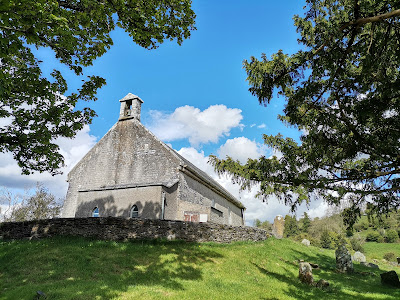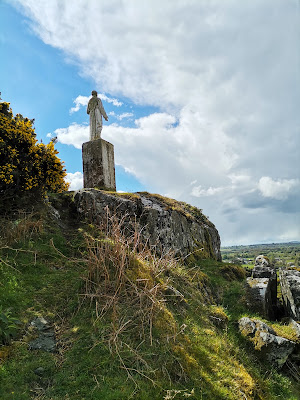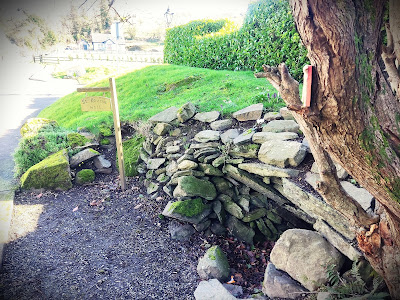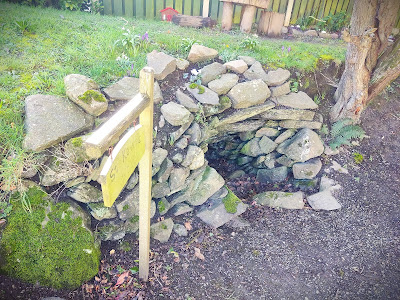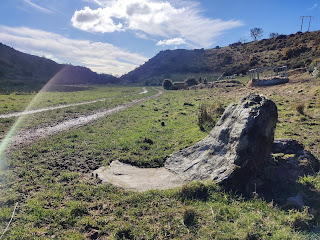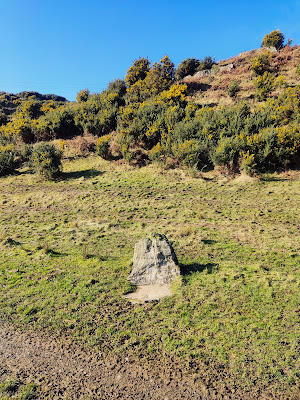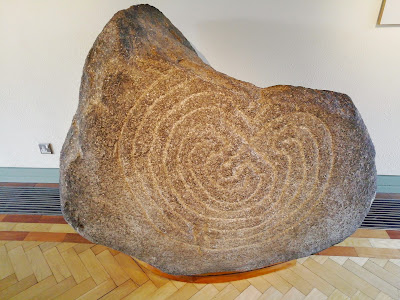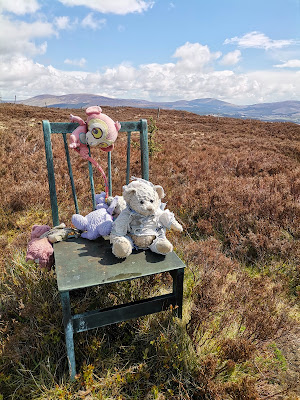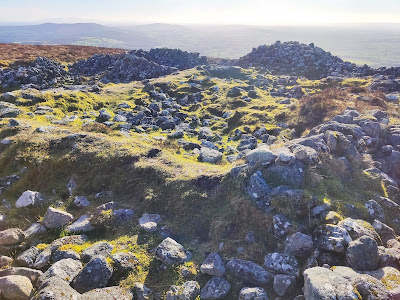Mention Hollywood and we often think of films and movie stars.
At Hollywood in Wicklow however it is Saint Kevin that is the star of the show.
Usually associated with the large monastic settlement at neighbouring Glendalough Saint Kevin is also heavily associated with the small village of Hollywood.
There are various landmarks and buildings located throughout the immediate vicinity of the village that bear testament to his influence at Hollywood.
Saint Kevin's Way is a waymarked walking trail from Hollywood to Glendalough.
Saint Kevin's Church of Ireland is a delightful and small building on the edge of the village dating from the latter half of the 1600's.
There are several medieval Cross slabs in the Church graveyard some of which belong to the type known as "Hollywood Slabs."
Hollywood Slabs can also be found locally in the West Wicklow region at Blessington, Donard and Ballymore Eustace.
Located to the south of the village on a nearby crag and below a statue of Saint Kevin is Saint Kevin's Cave, a small naturally formed cave.
It is sometimes called Saint Kevin's Bed however it shouldn't be confused with Saint Kevin's Bed at Glendalough. The name for the townland here is actually Dragoon Hill.
It is reputed that Saint Kevin slept at this cave and it is also possible that the cave may have been used by travelling pilgrims on their journey to Glendalough.
In the village itself is a small well dedicated as Saint Kevin's Well although I have no information as to how long this well has been in existence or if indeed it was a site of veneration at all.
Opposite Saint Kevin's Cave lying on the valley floor at Dragoon Hill is a Saint Stone which marks a ritual site.
It is called Saint Kevin's Chair and legend has it that if you sit down on it and can get back up to your feet without using your hands you will never suffer with a sore back from then on.
Behind Saint Kevin's Chair is an elongated Motte. A Motte is a large mound which would have at one time housed a small Anglo Norman Castle. Usually in Ireland these were just small wooden fortified and castellated structures.
They have long since been absorbed into the surrounding landscape and the only sign of their previous presence is the large mound, usually completely circular but in this instance an oblong mound. The motte can only really be seen properly from the opposite hill. A fenced Baily usually surrounded the motte hence the term "Motte and Bailey."
The "Hollywood Stone" is an intriguing labyrinth stone discovered in 1908 at nearby Lockstown. It was housed for a long time at the National Museum in Dublin but has been moved to a more apt location in the Visitor Centre at nearby Glendalough.
It has proven impossible to accurately date the stone however it is believed that rather than being of prehistoric origin the stone may have its origins as an intricate waymarker on an early Christian pilgrim route to Glendalough.
Truth be told it could have been prehistoric in origin and repurposed to suit Christian purposes. We will never know for sure which itself is perhaps a part of the stone's attraction.
Immediately east of Hollywood village is a small hill, Slievecorragh.
On the top of Slievecorragh is an unclassified Cairn which also contains some large slabs which may have been used in a structure. The Cairn was most probably a Neolithic burial site.
There is also an unusual memorial here to Wicklow man Dan Clancy which was erected in 2004. It is a cast Bronze chair.
When we visited there was a small Teddy sitting at the Chair. My friend calls Slievecorragh "Teddy Bear Hill."
